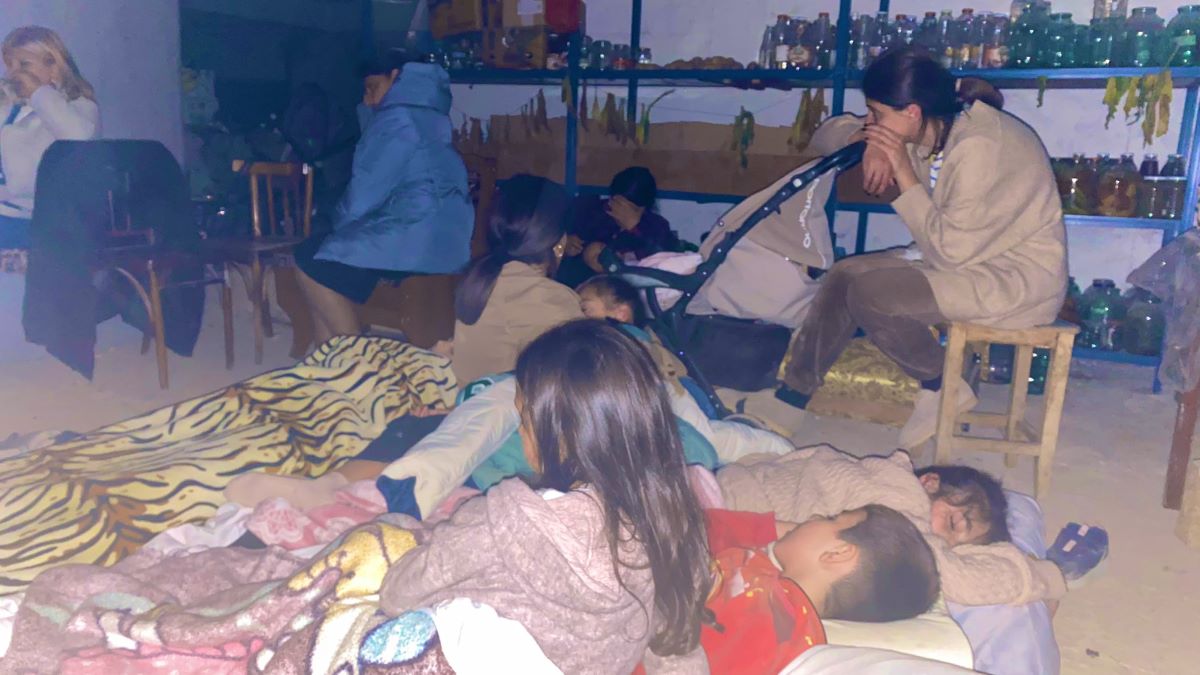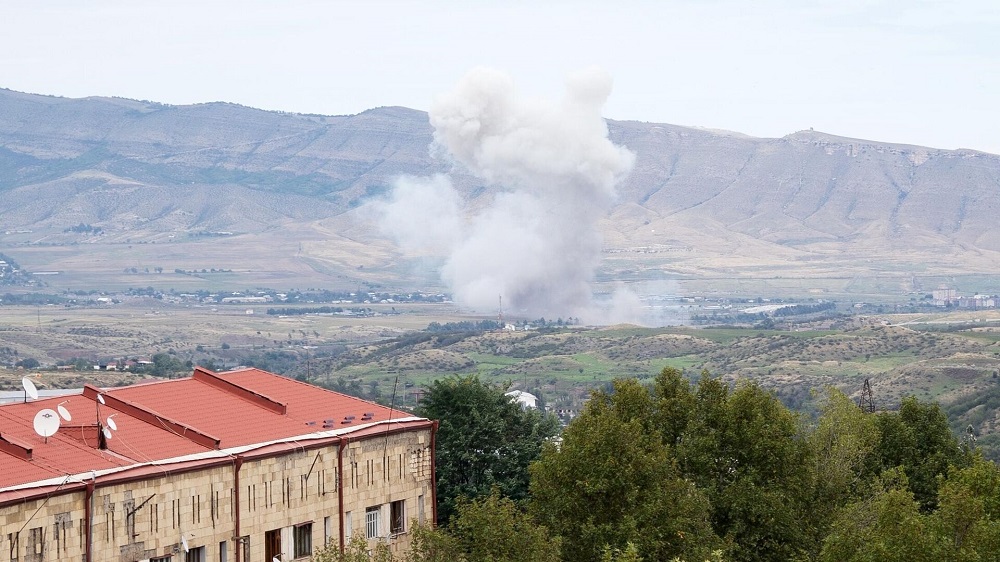Reintegration of Karabakh Armenians. "This is fantastic!"
Reintegration of Karabakh Armenians
Why Azerbaijani authorities’ proposals arouse skepticism
The one-day “counter-terrorist local actions” (this is how the third Karabakh war is officially called in Azerbaijan) ended with the complete defeat of illegal armed formations of Armenians in the territory of the Karabakh region of Azerbaijan.
Many, including me, believed that information about the upcoming war was nothing more than a bluff, Azerbaijan would not go against “peacekeepers” from Russia and would not violate the first paragraph of the statement of November 10, 2020 on ceasefire. However, it happened, and the results are evident. After three years of stalling, representatives of Karabakh Armenians declared their readiness to lay down arms and cooperate with the Azerbaijani authorities on the fate of the region’s population. There is no talk of a special status for the region.
- “Where Russia is, there is betrayal and humiliation.” Georgian experts assess events in Karabakh
- “Professionally and in the shortest possible time”. Opinion of an opposition politician from Baku
- Arrests of “anti-war” activists in Azerbaijan
Why did Azerbaijan stop a step away from the center of Khankendi, the administrative center of the former Nagorno-Karabakh Autonomous Oblast? It did not hoist its flag with brave cries of “Khankendi Bizimdir!” (“Stepanakert is ours!”). – meme from the times of the second Karabakh war, when every liberated city was accompanied by such a tweet and clip).
Let’s not deny that the Azerbaijani authorities would ideally like to have a Karabakh without Armenians. Why the headache with human rights, economic, humanitarian and other claims, while these very rights are not very well respected in the rest of the country for the representatives of the titular people. But this is the 21st century and for a long time separatists and those who support them abroad have been shouting about the upcoming “ethnic cleansing”. Under such conditions, the Azerbaijani authorities, in my opinion, took a theoretically correct step and invited the Armenians of Karabakh to reintegrate with the rest of Azerbaijan.
To begin with, the Azerbaijani authorities have offered all illegal armed groups to lay down their arms. This is understandable and correct. President Aliyev promised in his address to the nation that Karabakh Armenians would be guaranteed all rights and freedoms: “All their rights will be ensured – rights to education, cultural rights, religious rights, rights to municipal elections”. That sounds beautiful too. Aliyev emphasized in his speech that he is the master of his word, “my word is my signature”.
Before that, the Azerbaijani government amended the Tax Code and exempted all residents of Karabakh and East Zangezur (formerly occupied territories) from taxes for 10 years from January 1, 2023 (Article 227 of the AR Tax Code). This also applies to Armenians who have taken Azerbaijani citizenship. In general, it is wonderful.
President Aliyev promised a month before the start of “counter-terrorist measures” that those separatists who would voluntarily lay down arms would be granted amnesty. Presidential Aide for Foreign Policy Hikmet Hajiyev, already after the end of the “one-day war”, once again confirmed the amnesty proposal, adding that it would not apply to those who had committed war crimes during the first Karabakh war. (By the way, the list of these potential criminals has still not been published). Also a normal proposal. Amnesty for former fighters has been applied in Northern Ireland and the Balkans.
Then why such skepticism about the forthcoming reintegration? The most important reason is that Karabakh Armenians do not trust the Azerbaijani authorities. For a moment I imagined myself in their shoes and realized that I would not trust them either. This is a natural human reaction. So far, the Azerbaijani authorities are taking small steps to restore trust, but the time is too short and the degree of distrust is too high. It is difficult to expect serious changes here in the near future.
Secondly, it is not clear who will provide security for these people and how. Russian peacekeepers? Then we will have to extend their mandate (as Putin wants) for an indefinite period of time. Besides, as recent events have shown, it is dangerous to have much hope for Russian peacekeepers.
Third, there are legal issues. The Azerbaijani constitution does not provide for dual citizenship, and in order to acquire Azerbaijani citizenship, one will have to give up his Armenian passport. Are many people ready for such a step? They will be labeled traitors.
Fourth, problems in the field of culture and education. What textbooks will children and young men in Karabakh study with? It is clear that there are no problems with math and chemistry, but what about history? There are no textbooks in Armenian in Azerbaijan, even if we urgently organize translation and printing, what about the content, which is contrary to the content of textbooks in Armenia? It is possible to use Russian textbooks temporarily, but again Russia …
I think that the problem of conscription can be solved by compromise. There have been precedents in history when natives of certain regions were exempted from conscription (if they did not insist on it). Karabakh Armenians of draft age could serve in the engineering forces, rebuild towns and roads destroyed during the war.
Finally, about President Aliyev’s promise of municipal government. Today in Azerbaijan municipalities are the most powerless institution, just an appendage of the executive power. But there are persistent rumors about the forthcoming constitutional reform, where municipalities will be given more rights for local self-government. It would be good to bring these proposals to public discussion, and listen to representatives of Karabakh and other regions, and accept their proposals in the draft. So far it is a “cat in a bag”.
To summarize, I personally think that the plans to reintegrate the Armenian population of Karabakh into Azerbaijani society are still a fantasy. Most of them will decide to leave, those who cannot realize themselves in Armenia or Russia, mainly the elderly, will remain. But it would be good to enshrine in future agreements a mandatory right to repatriation. If after a certain period of time a person is unable to adapt and wants to return, he or she should be provided with all guarantees, including housing, employment and the entire social package.





















